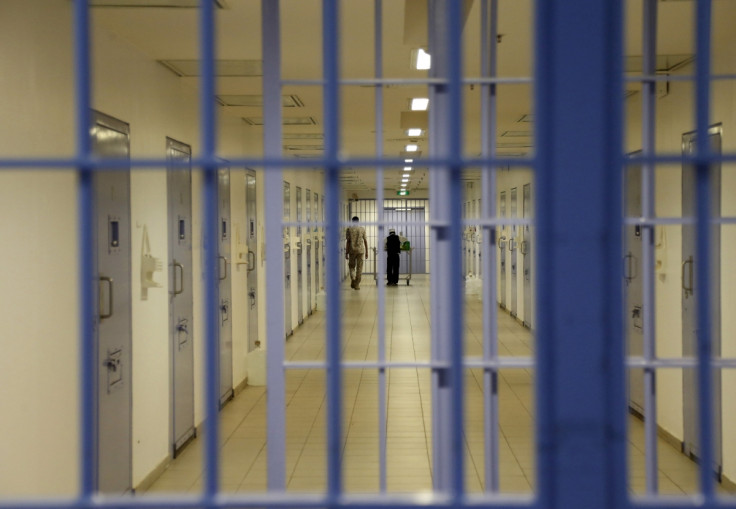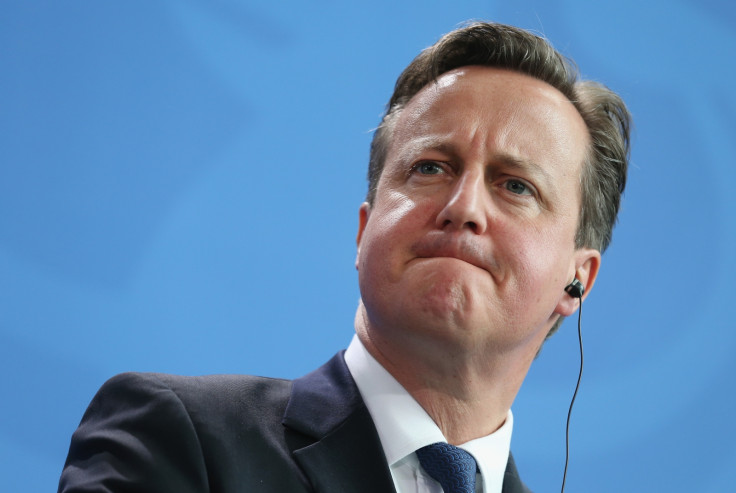David Cameron's U-turn on Saudi Arabia prison contract: The story they didn't want you to read

There is more to the story of Michael Gove's cabinet fight with David Cameron and Philip Hammond over a deal to sell UK justice services to Saudi Arabia.
The £5.9m ($9.2m) contract that the Ministry of Justice (MoJ) won to train Saudi prison staff was dropped yesterday (13 October) - but it's hard to say if this would have happened if not for the dogged reporting of several journalists and bloggers, including myself.
"Openness and transparency can save money, strengthen people's trust in government and encourage greater public participation in decision-making," says the UK's government efficiency, transparency and accountability website. This ideal of transparency is one the government is still trying to live up to.
As I sought information from the MoJ, which should have been readily available to the public, I was greeted with a labyrinthine world of Kafkaesque contradiction and confusion.

The Saudis, The Brits, and Justice
The existence of the Saudi contract originally became public when investigative reporter David Hencke spotted a mention of it in the MoJ's 2014 Mid Year Report to Parliament.
Hencke wrote in a blog post yesterday: "When I first saw the disclosure of the deal, I had no idea we had a commercial arm of the ministry, let alone that we had already done deals with Oman and Macedonia and were bidding for a Saudi contract."
The story was published in The Guardian and elsewhere, and Hencke began filing Freedom of Information requests to learn more about the deal and the commercial branch of the Ministry of Justice named Just Solutions International (JSI). What he got back was a letter telling him it would cost more than £600 and nearly four days of civil servant work to find the 2,000 emails detailing the creation of JSI in 2012.
At the same time, Financial Times law columnist, lawyer David Allen Green, who tweets and blogs under the name Jack of Kent, filed his own Freedom of Information request asking for all the documents the MoJ held about JSI's Saudi contract bid. "No," was the response.
One, because "the information held by the Ministry of Justice includes documents supplied in confidence by the Kingdom of Saudi Arabia (KSA) in relation to the proposal, and we believe that their disclosure would create an actionable breach of confidence."
Maybe, just maybe, the UK government hadn't followed all of its own rules in setting up JSI.
And two, because "the Ministry of Justice is not obliged to provide information where we believe that disclosing the information would be likely to prejudice the commercial interests of any person including the department which holds it."
That was in Febuary. Months later Saudi Arabia broke its record for the number of beheadings in a year. The country also began flogging blogger Raif Badawi and the Saudi Supreme Court upheld his sentence of 1,000 lashes for writing critically of theocracies.
I began asking questions of the MoJ. The UK was selected by Saudi Arabia to fulfil the contract, but nothing had been finalized. In light of not only the country's justice track record, but the very public opposition around the world to Badawi's case, would the UK continue to bid on contracts in Saudi Arabia?
The answer: "We don't provide a running commentary on ongoing discussions," wrote an MoJ spokesperson.
Then on 29 June the Gulf Center for Human Rights (GCHR) announced it had filed a High Court challenge against the entire JSI program. In its Saudi contract bid the MoJ had "refused to disclose human rights compliance," argued Adam Hundt, a partner at Deighton Pierce Glynn Solicitors representing GCHR.

According to the UK's Overseas Security and Justice Assistance Guidance drawn up by William Hague in 2011 "it is of fundamental importance that [Her Majesty's Government] work on security and justice overseas is based on British values, including human rights and democracy." The document provides a checklist of red flags.
Use of the death penalty? Check. Torture or cruel, inhuman or degrading treatment? Check. Unlawful interference with democratic rights (e.g. freedom of assembly or expression)? Check. Unfair trial or denial of justice? Check.
Legally, the Ministry of Justice had to respond to the challenge. After a couple delays the response came on 29 July in a Summary Grounds of Resistance on behalf of the recently appointed Minister of Justice Michael Gove. It is a public document filed in a public court.
Kafkaesque labyrinth
I asked the MoJ press office if I could get a copy. I heard from a source that the summary showed Gove had launched an investigation of the entire JSI program.
"Can you please refer me to the document that mentions a review?" was the press office response. Yes, the court summary. "Have you seen the document responding to the judicial review?" My response was: "Once you've got those documents cleared I'm very happy to receive them."
"For the document itself please contact the Queen's Bench Division of the High Court," was the response. I did. They referred me back to the press office. I went back to the press office. They referred me back to the court. I even called the barrister handling the case on behalf of the MoJ. He told me I should be able to promptly get the summary as it's public information.
I wrote back to the press office: "I've followed up after finding the appropriate court, and they say that while they do hold the documents that they cannot be released, even though they should be available to the public."
Only when I started writing to complain to a ridiculously long and obscure email address - administrativecourtoffice.generaloffice@hmcts.x.gsi.gov.uk - did I start getting somewhere.
What would I have to do to get the summary? Well, they wouldn't send it in a .doc or .pdf file or any electronic means. I had to got to the High Court on the Strand and get it myself.
On a Friday afternoon I navigated the winding Victorian Gothic hallways and dead ends of the Royal Courts of Justice to find the room where I had to queue to pay a £25 fee to get a photo copy of the summary released before going to another room where I queued again to get the papers.
Bid withdrawn
In the end, IBTimes UK was able to publish the summary, which revealed that maybe, just maybe, the government hadn't followed all of its own rules in setting up JSI. The Minister of Justice was investigating.
Following Gove's investigation, JSI was disbanded. The revelation came from Parliamentary Under-Secretary for the Ministry of Justice Andrew Selous in response to a written question by another MP. But he noted the Saudi contract remained.
On Tuesday (13 October), The Times revealed that Gove fought with fellow Cabinet minister and Foreign Office head Philip Hammond, who was backed by Prime Minister David Cameron. In the end, they relented and by noon the bid was withdrawn.
There is still much we do not know about Just Solutions International. How and why was it set up to sell UK Justice services overseas when some 91 community courts are set to close and other cutbacks are being made in the UK justice system? And why is the website advertising its services still up and active online?
We will continue to follow this story.
© Copyright IBTimes 2024. All rights reserved.






